inside the Yugoslavia tribunal
a project by Martino Lombezzi and Jorie Horsthuis
During the nineties, the world was shocked by the war that was raging over the Balkans. Europe’s deadliest conflict since World War II was marked by grim war crimes, including genocide, crimes against humanity, and ethnic cleansing. The conflict lasted for almost ten years, left over 130,000 people dead, and led to the breakup of Yugoslavia.
On February 22, 1993, in the midst of the atrocities, the United Nations Security Council unanimously adopted Resolution 808 to establish the International Criminal Tribunal for the Former Yugoslavia (ICTY). For the first time since the Nuremberg and Tokyo trials, a war crimes court was set up to prosecute the political and military leaders that orchestrated the war. While investigators started to collect evidence in the Balkans and prosecutors started to compose indictments in The Hague (the Netherlands), the hunt for the war criminals started. Ultimately, it took 24 years and over 10,800 trial days to bring the 161 indictees to justice.
In the final year before its closure, we entered behind the scenes of this international institution. We set out to tell the inside stories of the people that pioneered international criminal justice. Also, we wanted to document the places and objects that were essential to the trials, but remained closed to the public at large.

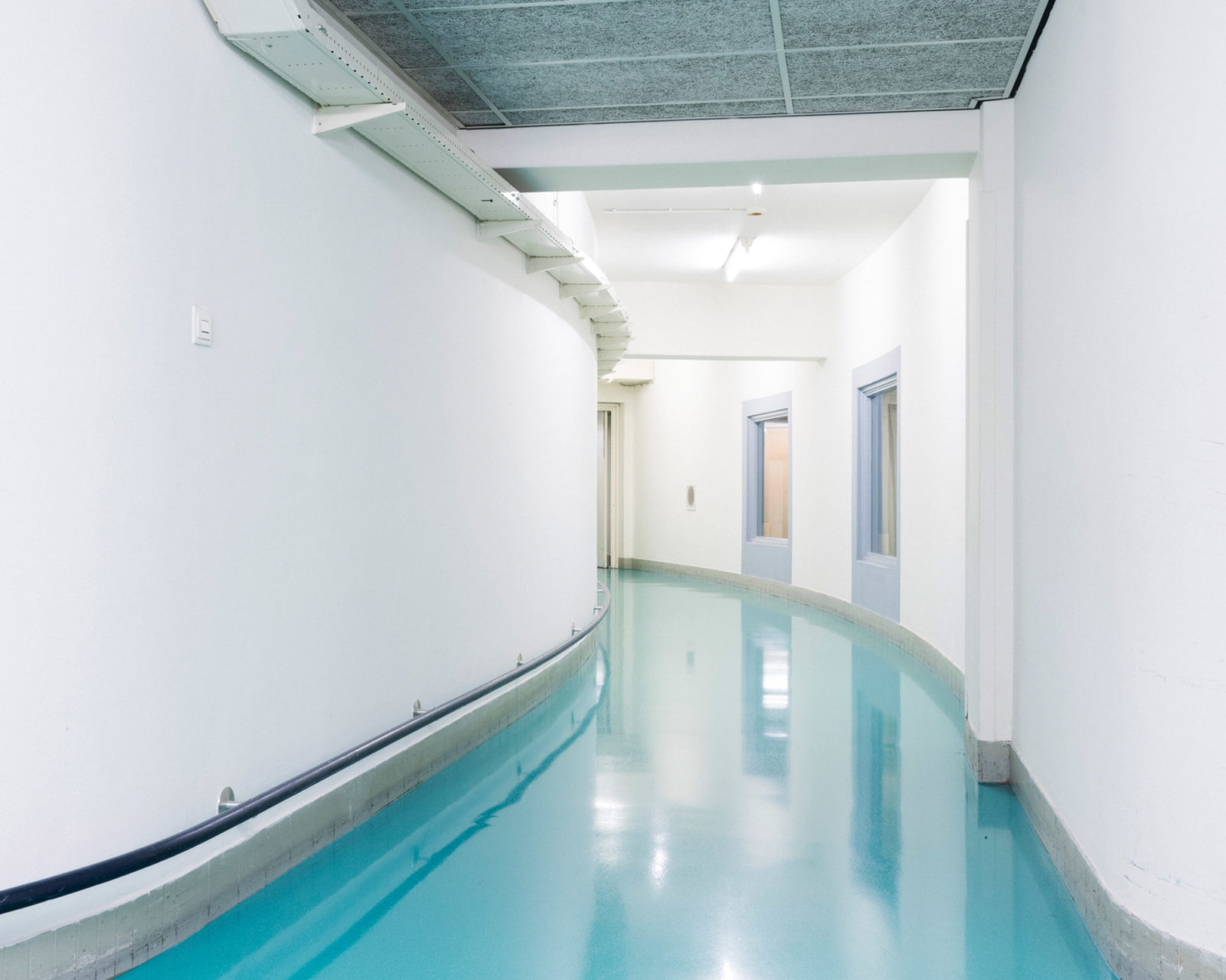 ICTY, International Criminal Tribunal for the former Yugoslavia, The Hague, The Netherlands, 2017.
Corridor
When new employees start working in the ICTY building, they will get lost for sure. Usually, this period takes weeks – if not months. 'This building is a maze', laughs Angelina Sutalo, the press officer. 'I didn't even know we had a fifth floor, until last year. I was amazed.'
ICTY, International Criminal Tribunal for the former Yugoslavia, The Hague, The Netherlands, 2017.
Corridor
When new employees start working in the ICTY building, they will get lost for sure. Usually, this period takes weeks – if not months. 'This building is a maze', laughs Angelina Sutalo, the press officer. 'I didn't even know we had a fifth floor, until last year. I was amazed.' 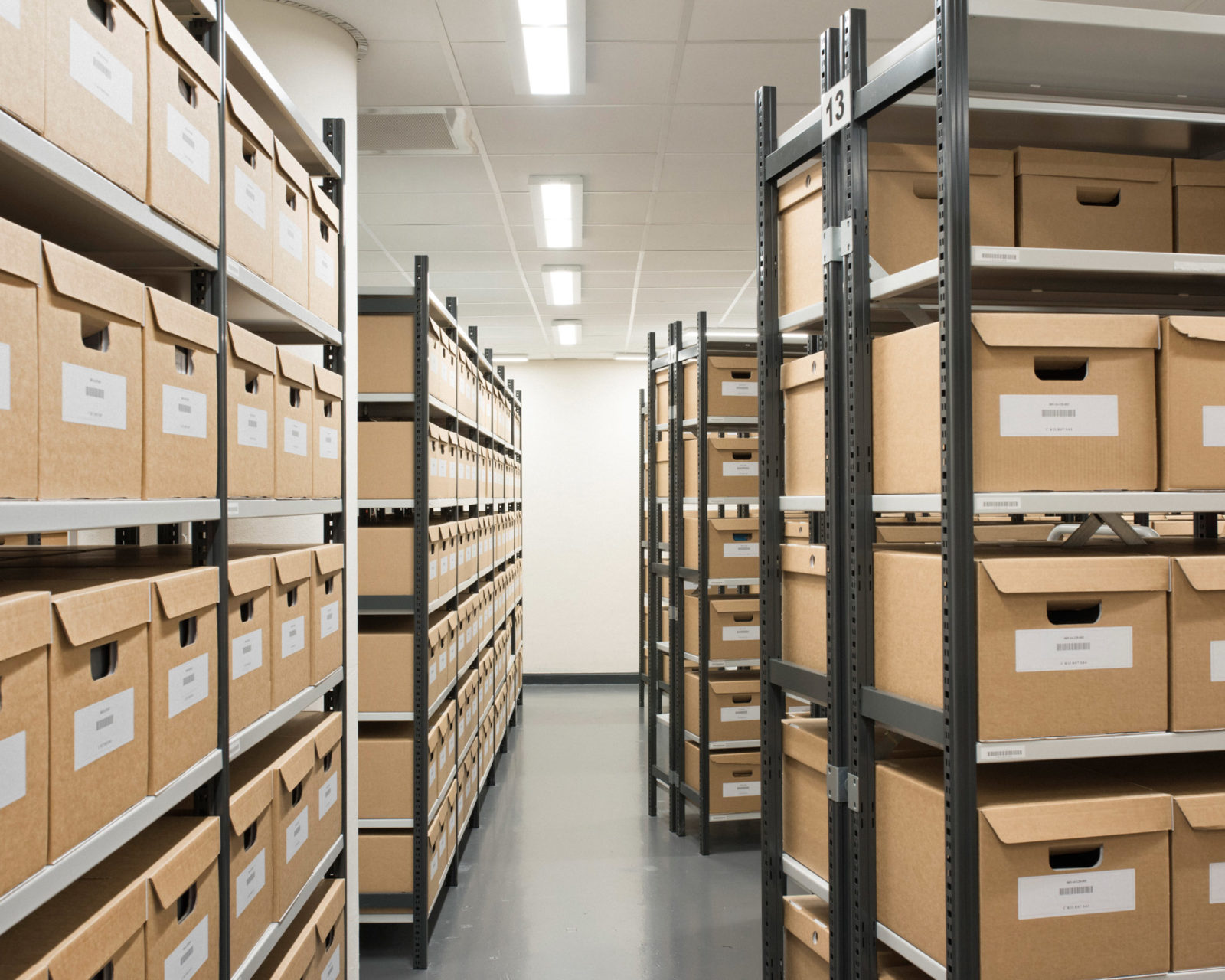 ICTY, International Criminal Tribunal for the former Yugoslavia, The Hague, The Netherlands, 2017.
Archive
Part of the archive of the ICTY is based in former Courtroom II. Humidity and temperature is measured constantly, and only assigned people can enter. In total, the archive contains 10 kilometers of physical documents and 2 petabytes of audiovisual material. The challenge is to preserve it for the next centuries, so that in 100 years, journalists and academics can still find what they are looking for.
ICTY, International Criminal Tribunal for the former Yugoslavia, The Hague, The Netherlands, 2017.
Archive
Part of the archive of the ICTY is based in former Courtroom II. Humidity and temperature is measured constantly, and only assigned people can enter. In total, the archive contains 10 kilometers of physical documents and 2 petabytes of audiovisual material. The challenge is to preserve it for the next centuries, so that in 100 years, journalists and academics can still find what they are looking for.  ICTY, International Criminal Tribunal for the former Yugoslavia, The Hague, The Netherlands, 2017.
Martina Fryda-Kaurimsky, interpreter
'The legal discussions between prosecution and defense, I enjoy most', says Martina Fryda-Kaurimsky. 'But they are also the most challenging. They go so rapidly, and they are so in-depth, that at the end of it, you're dead.' In her first months at the tribunal, she didn't understand all the aspects of international criminal law. 'In the evenings, I studied the legal concepts that were used in the courtroom. I really had the sense of doing something important. To be part of this, and to help document the war crimes that have happened in my country, still gives me fulfillment.'
ICTY, International Criminal Tribunal for the former Yugoslavia, The Hague, The Netherlands, 2017.
Martina Fryda-Kaurimsky, interpreter
'The legal discussions between prosecution and defense, I enjoy most', says Martina Fryda-Kaurimsky. 'But they are also the most challenging. They go so rapidly, and they are so in-depth, that at the end of it, you're dead.' In her first months at the tribunal, she didn't understand all the aspects of international criminal law. 'In the evenings, I studied the legal concepts that were used in the courtroom. I really had the sense of doing something important. To be part of this, and to help document the war crimes that have happened in my country, still gives me fulfillment.'  ICTY, International Criminal Tribunal for the former Yugoslavia, The Hague, The Netherlands, 2017.
Witness Room
Witnesses get support from the ICTY from the moment they are invited to tell their story in court. In the building, there are special rooms where they can have some rest and prepare for trial.
ICTY, International Criminal Tribunal for the former Yugoslavia, The Hague, The Netherlands, 2017.
Witness Room
Witnesses get support from the ICTY from the moment they are invited to tell their story in court. In the building, there are special rooms where they can have some rest and prepare for trial. 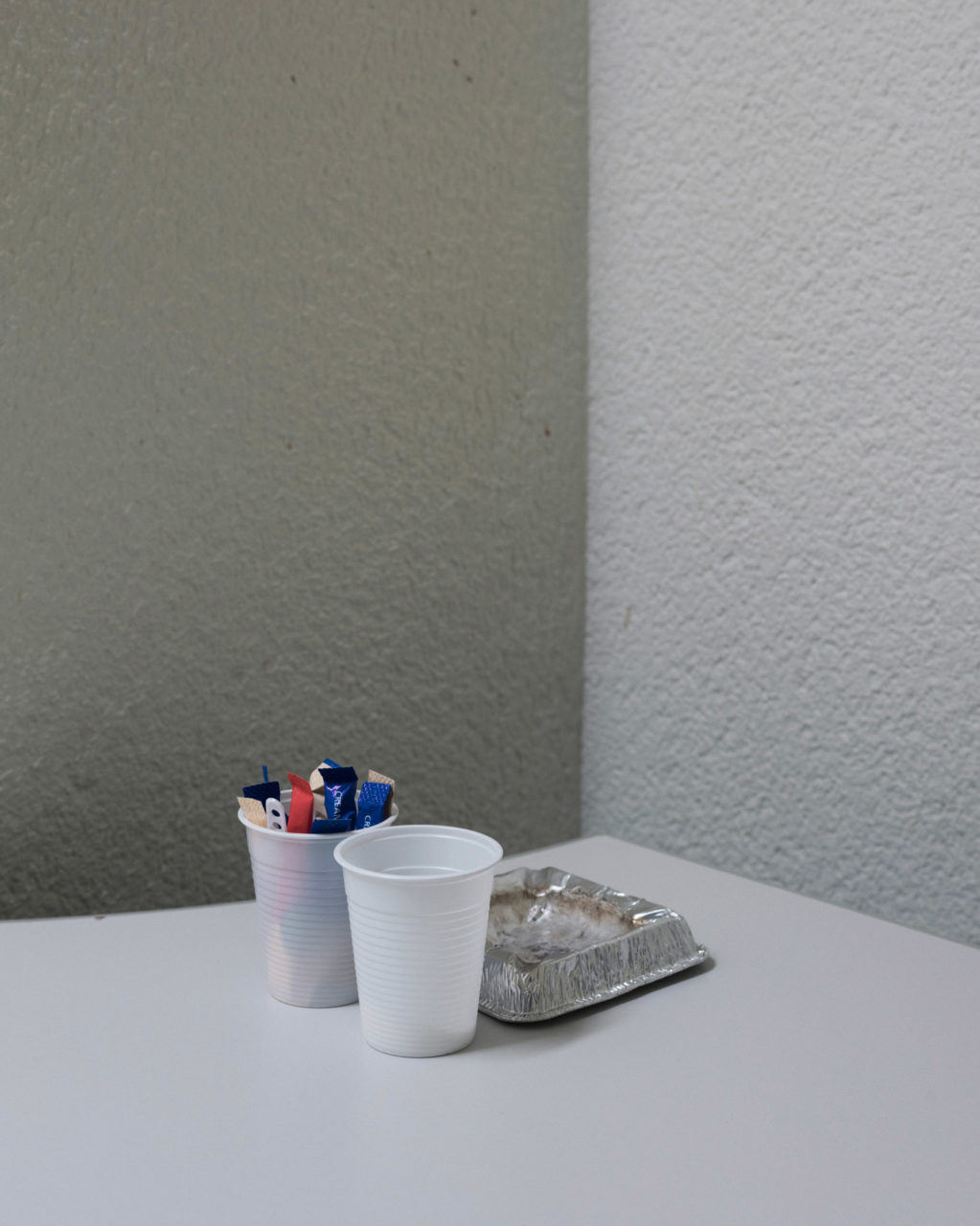 ICTY, International Criminal Tribunal for the Former Yugoslavia, The Hague, The Netherlands, 2017.
Holding Cells
Holding cells hosting detainees waiting to enter the courtroom. Detainees are the only ones allowed to smoke inside the building, just inside these cells.
ICTY, International Criminal Tribunal for the Former Yugoslavia, The Hague, The Netherlands, 2017.
Holding Cells
Holding cells hosting detainees waiting to enter the courtroom. Detainees are the only ones allowed to smoke inside the building, just inside these cells. 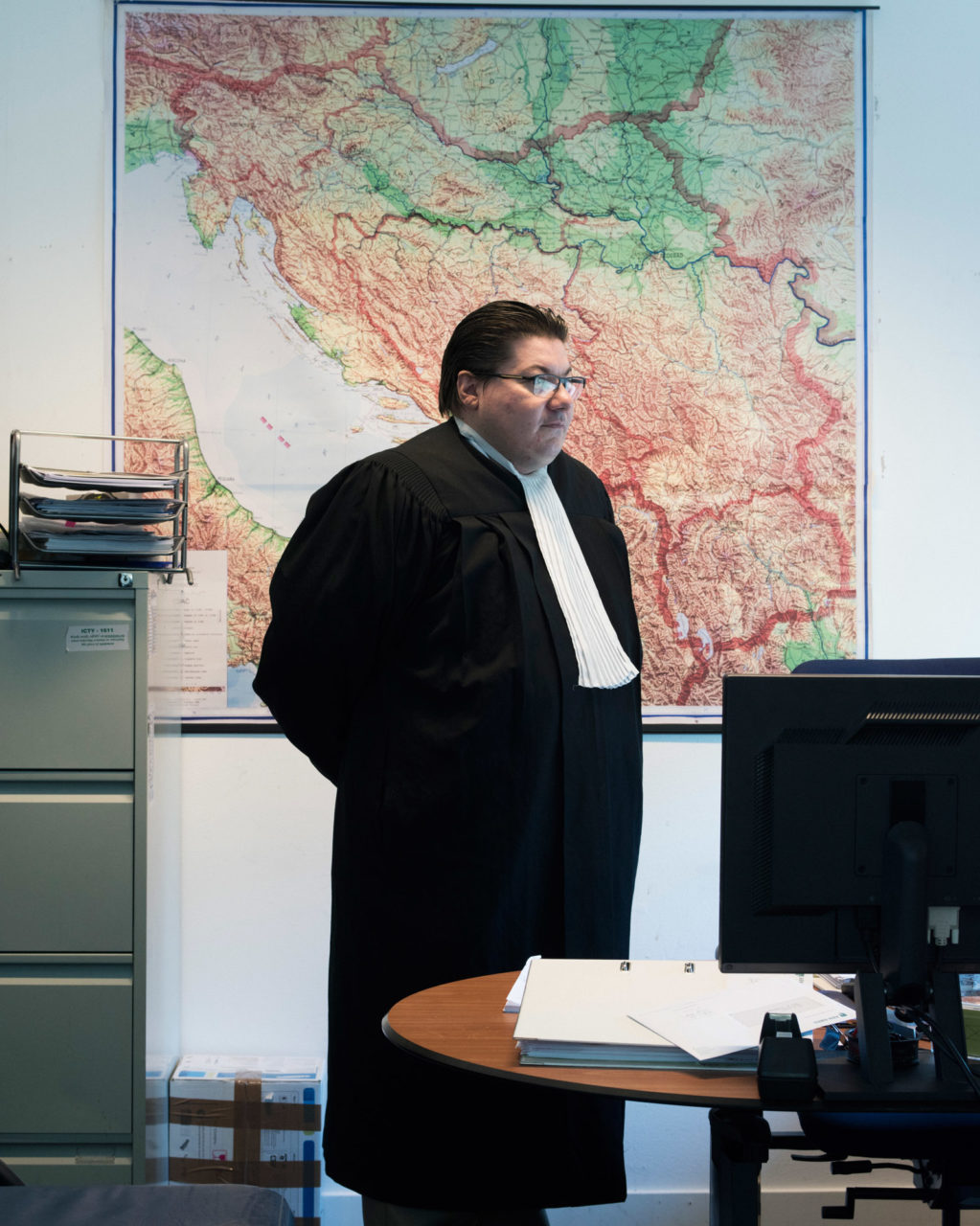 ICTY, International Criminal Tribunal for the Former Yugoslavia, The Hague, The Netherlands, 2017.
Defense lawyers
Dragan Ivetic (43, United States) is the defense lawyer of former Bosnian Serb general Ratko Mladic. He started to work for the ICTY ‘by accident’, as an intern, but soon got grasped by the trials and became one of the few fulltime defense lawyers. ‘Our job is challenging: we have to fight for a fair trial whereas mostly the verdict has already been settled in the media.’
ICTY, International Criminal Tribunal for the Former Yugoslavia, The Hague, The Netherlands, 2017.
Defense lawyers
Dragan Ivetic (43, United States) is the defense lawyer of former Bosnian Serb general Ratko Mladic. He started to work for the ICTY ‘by accident’, as an intern, but soon got grasped by the trials and became one of the few fulltime defense lawyers. ‘Our job is challenging: we have to fight for a fair trial whereas mostly the verdict has already been settled in the media.’ 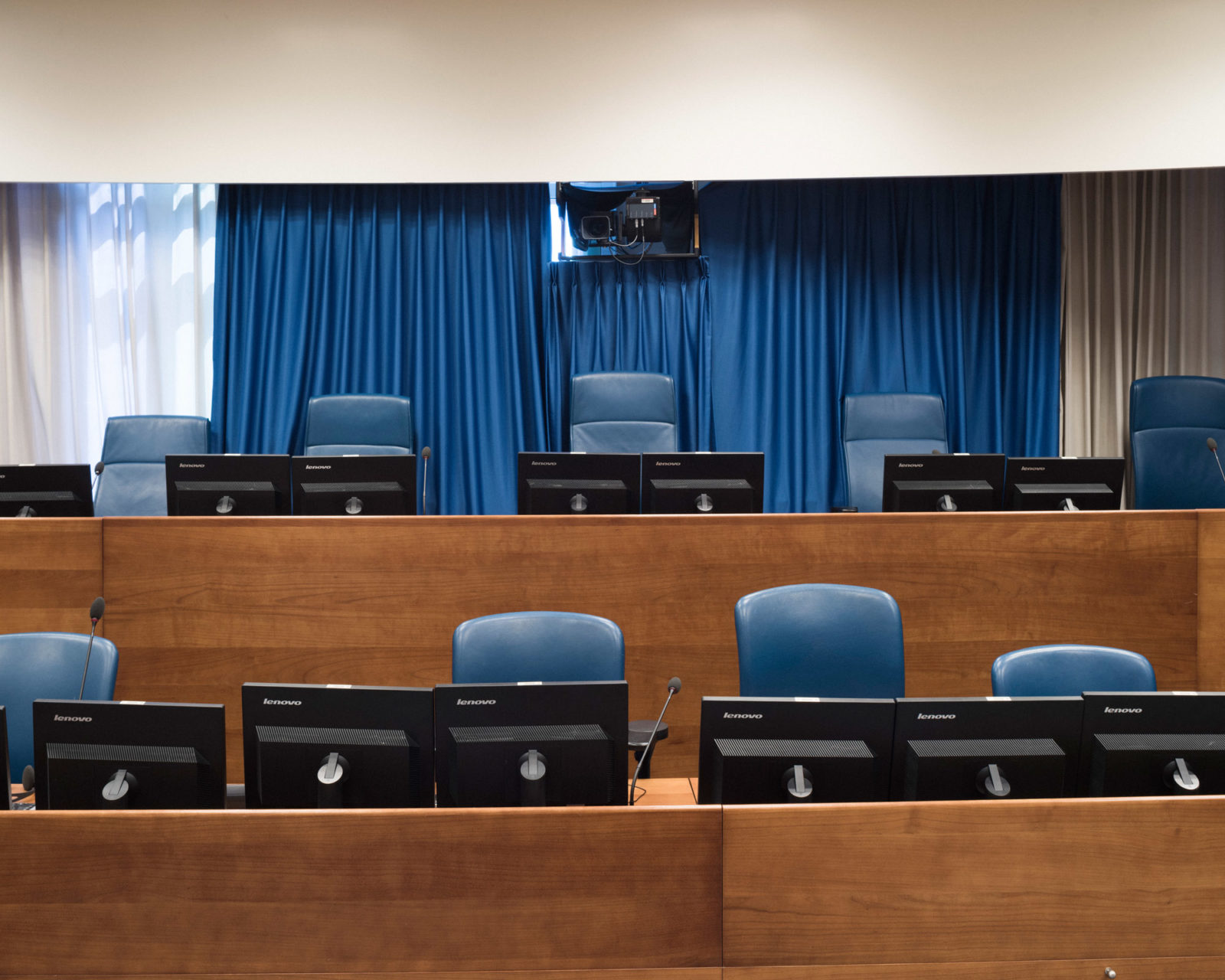 ICTY, International Criminal Tribunal for the Former Yugoslavia, The Hague, The Netherlands, 2017.
Courtroom I
The most important space in the ICTY is Courtroom I, on the first floor of the building. This is where the trials were held against the leading figures of the war in former Yugoslavia: Milosovic, Karadzic and Mladic. It is a restricted area where you are only allowed to enter if you have a role in the proceedings. The Judges and Registar seats.
ICTY, International Criminal Tribunal for the Former Yugoslavia, The Hague, The Netherlands, 2017.
Courtroom I
The most important space in the ICTY is Courtroom I, on the first floor of the building. This is where the trials were held against the leading figures of the war in former Yugoslavia: Milosovic, Karadzic and Mladic. It is a restricted area where you are only allowed to enter if you have a role in the proceedings. The Judges and Registar seats. 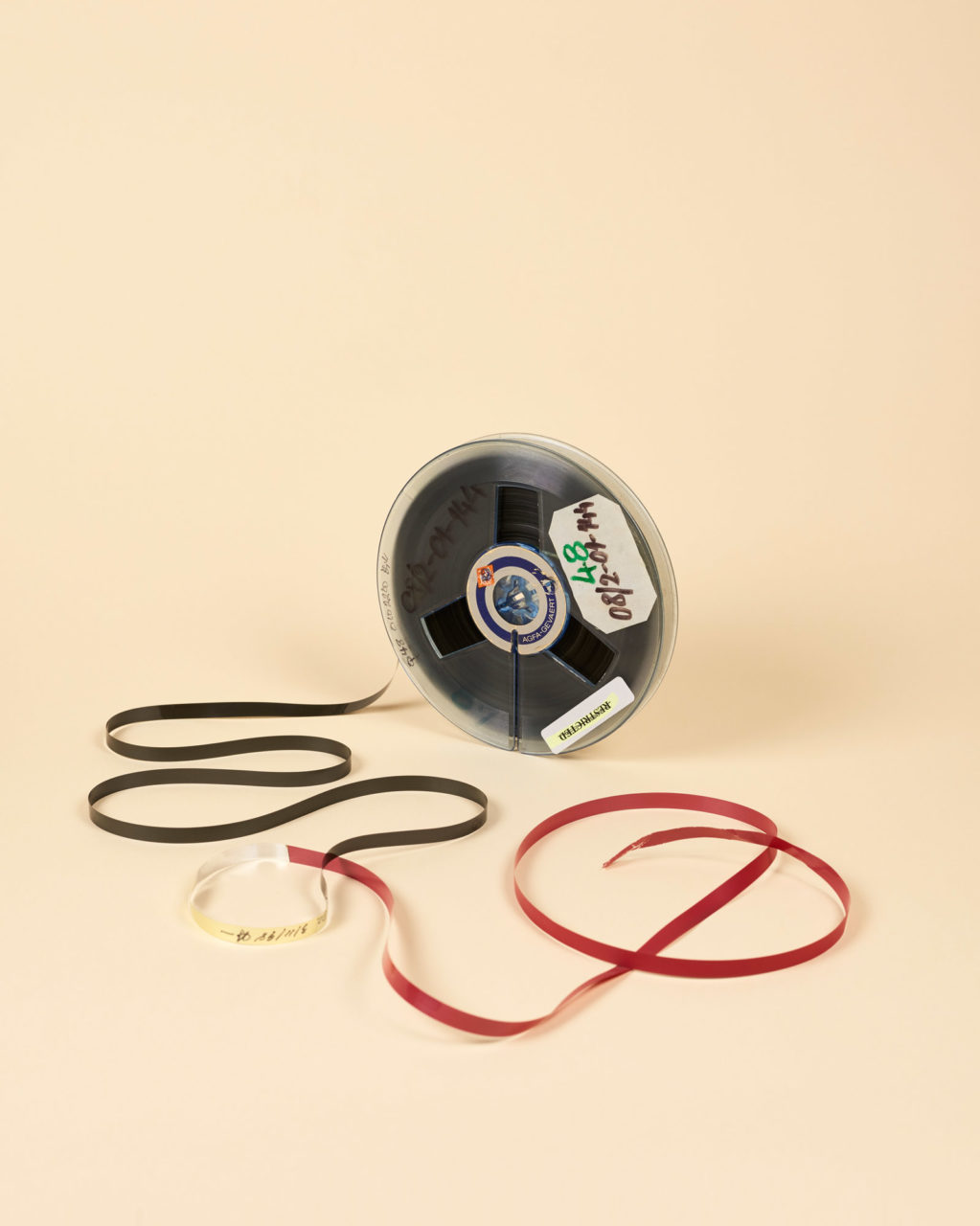 ICTY, International Criminal Tribunal for the former Yugoslavia, The Hague, The Netherlands, 2018. Evidence Unit of the Office of the Prosecutor, evidence collection.
Reel-to-reel tape containing audio of the so- called "Kill Them All" intercept. The conversation between general Radislav Krstic and Colonel Dragan Obrenovic, Chief of Staff in the VRS Zvornik Brigade took place on 2 August 1995. Obrenovic pleaded guilty to the Srebrenica crimes and was sentenced to 17 years in prison. The court heard the recording of a conversation in which Obrenovic informs Krstic that a few Muslims from a column trying to break through to Tuzla had been captured. Krstic then orders, “Kill all of them! Don’t leave anyone alive!” Obrenovic replies, “Everything goes as planned…” and Krstic says, “That’s what I want to hear! The Turks are probably listening. Let them listen, fuck them”
T000-0471- T000-0471
ICTY, International Criminal Tribunal for the former Yugoslavia, The Hague, The Netherlands, 2018. Evidence Unit of the Office of the Prosecutor, evidence collection.
Reel-to-reel tape containing audio of the so- called "Kill Them All" intercept. The conversation between general Radislav Krstic and Colonel Dragan Obrenovic, Chief of Staff in the VRS Zvornik Brigade took place on 2 August 1995. Obrenovic pleaded guilty to the Srebrenica crimes and was sentenced to 17 years in prison. The court heard the recording of a conversation in which Obrenovic informs Krstic that a few Muslims from a column trying to break through to Tuzla had been captured. Krstic then orders, “Kill all of them! Don’t leave anyone alive!” Obrenovic replies, “Everything goes as planned…” and Krstic says, “That’s what I want to hear! The Turks are probably listening. Let them listen, fuck them”
T000-0471- T000-0471 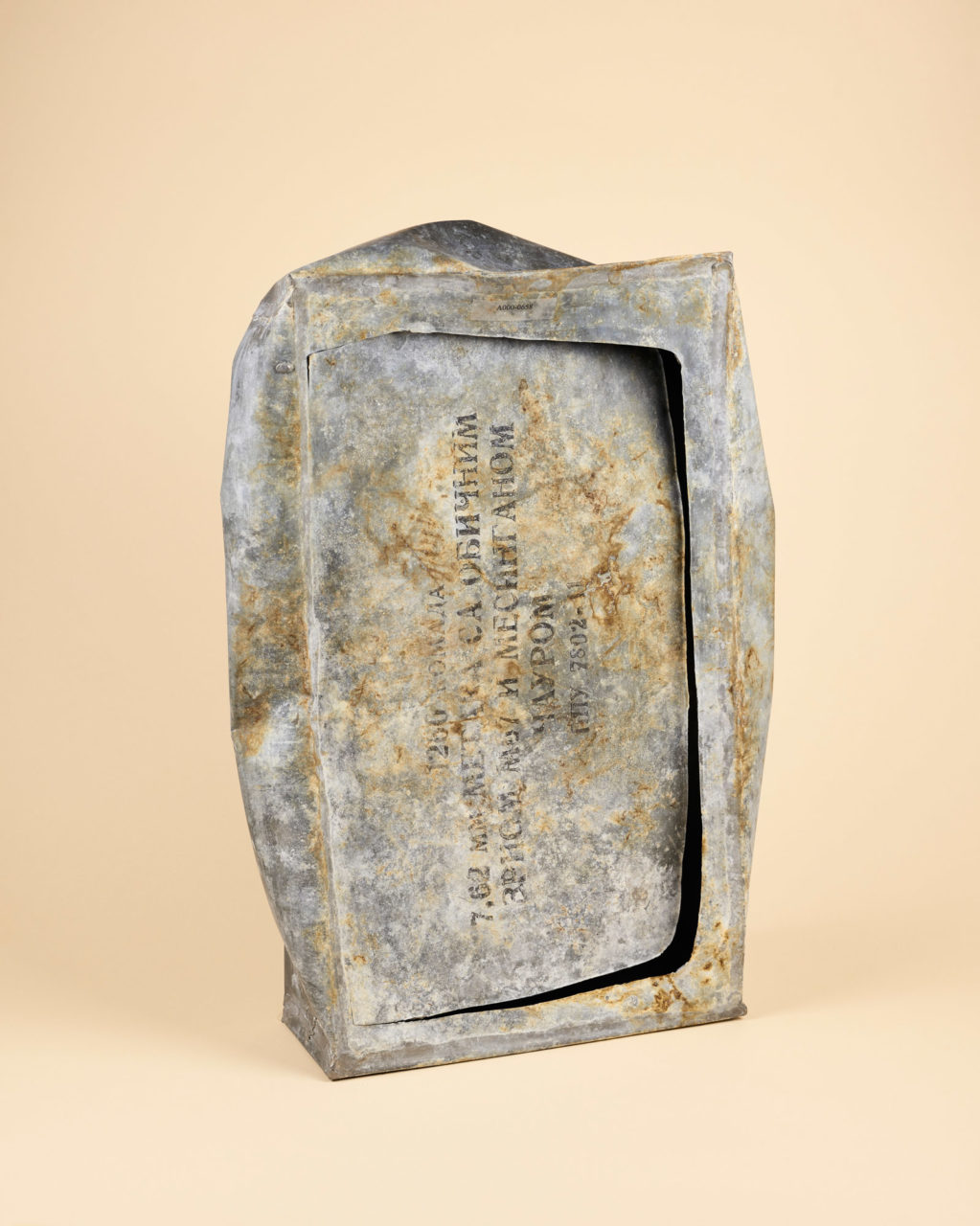 ICTY, International Criminal Tribunal for the former Yugoslavia, The Hague, The Netherlands, 2018. Evidence Unit of the Office of the Prosecutor, evidence collection.
Metal ammunition box containing the ammunition used for mass executions and found in an area near Lazete mass grave (Srebrenica).
ICTY, International Criminal Tribunal for the former Yugoslavia, The Hague, The Netherlands, 2018. Evidence Unit of the Office of the Prosecutor, evidence collection.
Metal ammunition box containing the ammunition used for mass executions and found in an area near Lazete mass grave (Srebrenica). 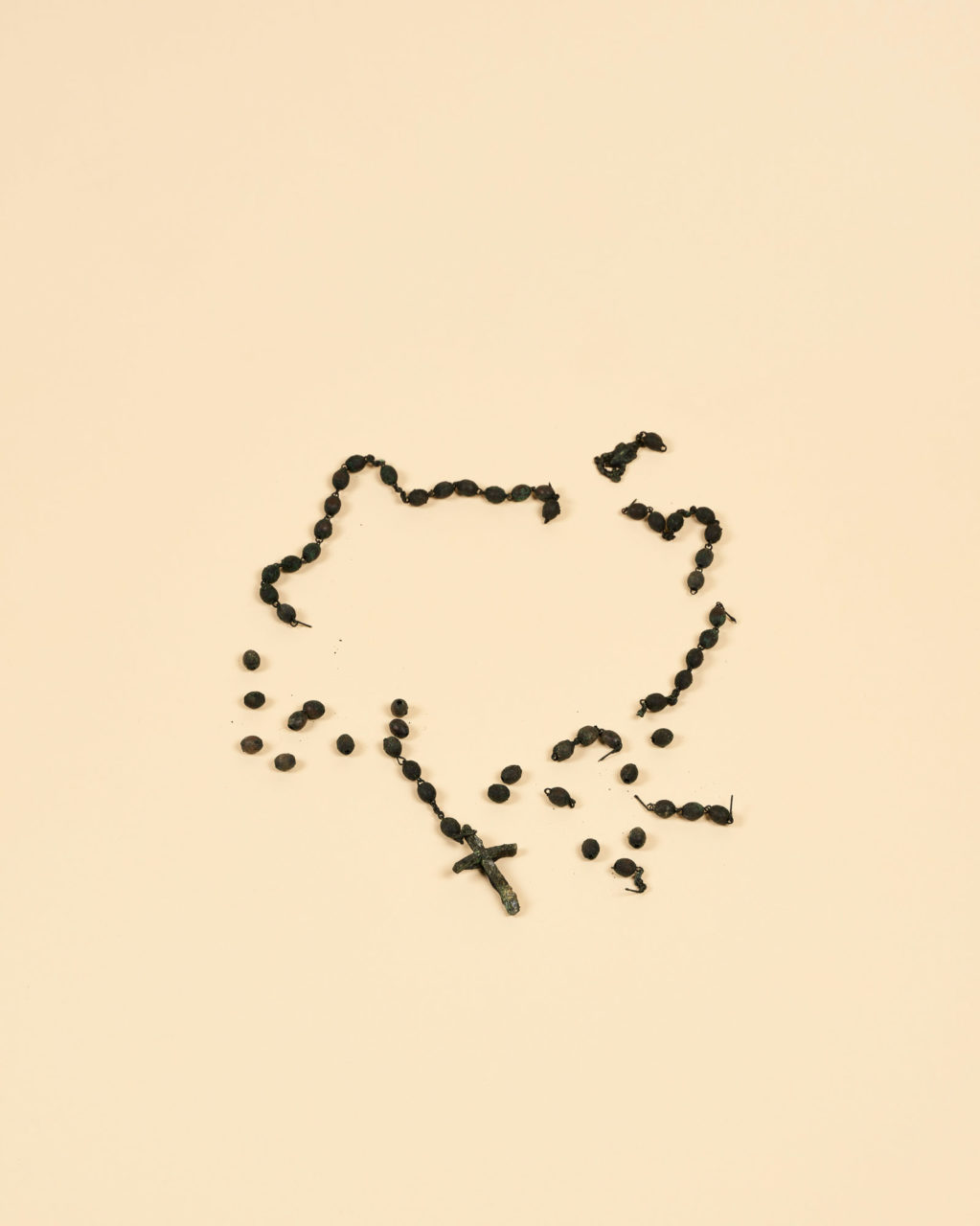 ICTY, International Criminal Tribunal for the former Yugoslavia, The Hague, The Netherlands, 2018. Evidence Unit of the Office of the Prosecutor, evidence collection.
Rosary found at Dalj mass grave, Croatia. In the Daljski Atar 23 bodies were discovered in a well. The bodies belonged to Croats, residents of Dalj, who were taken out of their homes in 1991 and 1992.
A000-4514- A000-4514
ICTY, International Criminal Tribunal for the former Yugoslavia, The Hague, The Netherlands, 2018. Evidence Unit of the Office of the Prosecutor, evidence collection.
Rosary found at Dalj mass grave, Croatia. In the Daljski Atar 23 bodies were discovered in a well. The bodies belonged to Croats, residents of Dalj, who were taken out of their homes in 1991 and 1992.
A000-4514- A000-4514 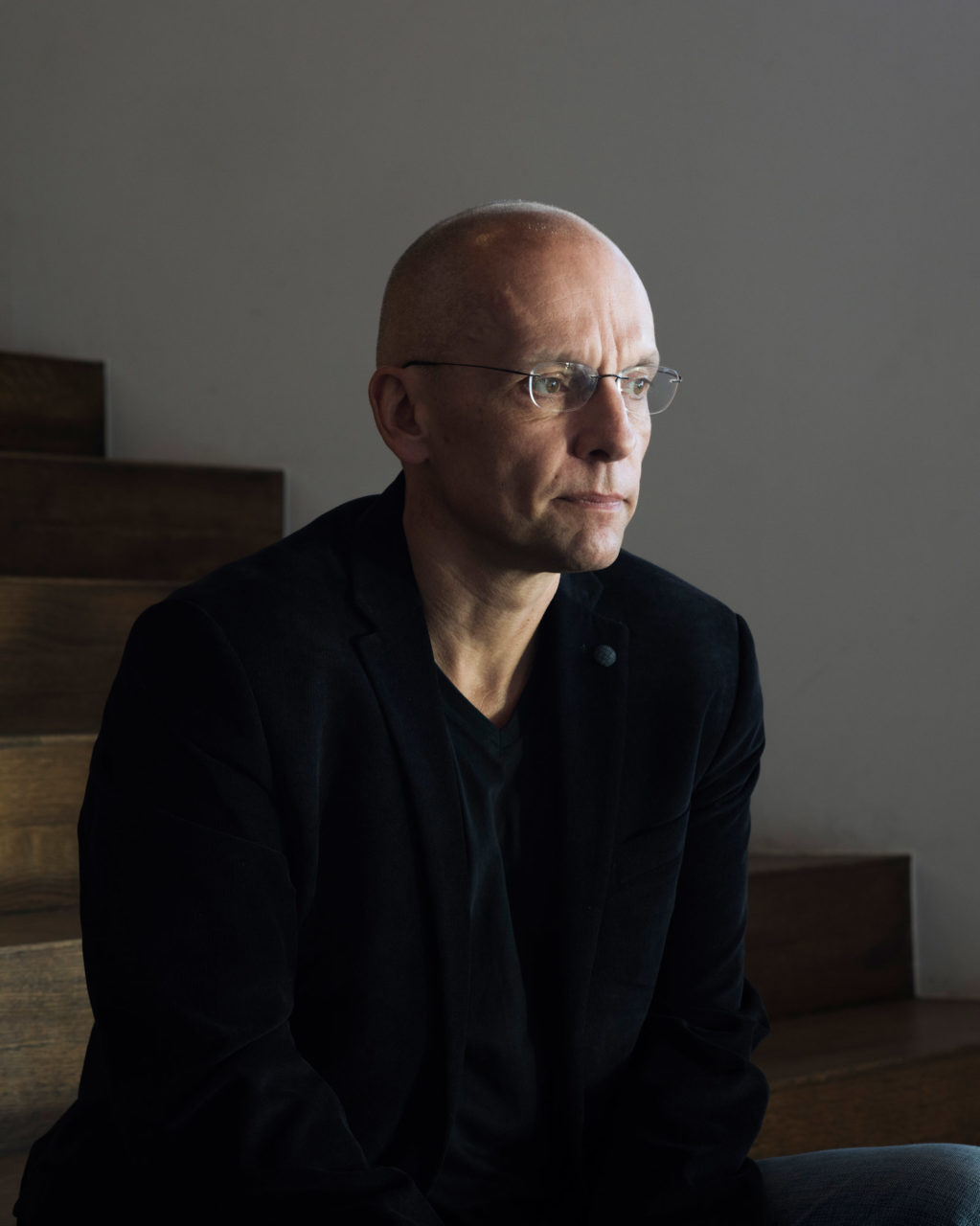 Resolution 808. Inside the Yugoslavia Tribunal. Amsterdam, The Netherlands, 2018.
Predrag D., researcher for the Office of the Prosecutor.
'The work for the tribunal changed me a lot', tells Predrag Dojcinovic, who has been working for the Office of the Prosecutor since 1998. 'Meeting these killers and reading all this horrible material, you learn a lot about yourself.'
Resolution 808. Inside the Yugoslavia Tribunal. Amsterdam, The Netherlands, 2018.
Predrag D., researcher for the Office of the Prosecutor.
'The work for the tribunal changed me a lot', tells Predrag Dojcinovic, who has been working for the Office of the Prosecutor since 1998. 'Meeting these killers and reading all this horrible material, you learn a lot about yourself.' 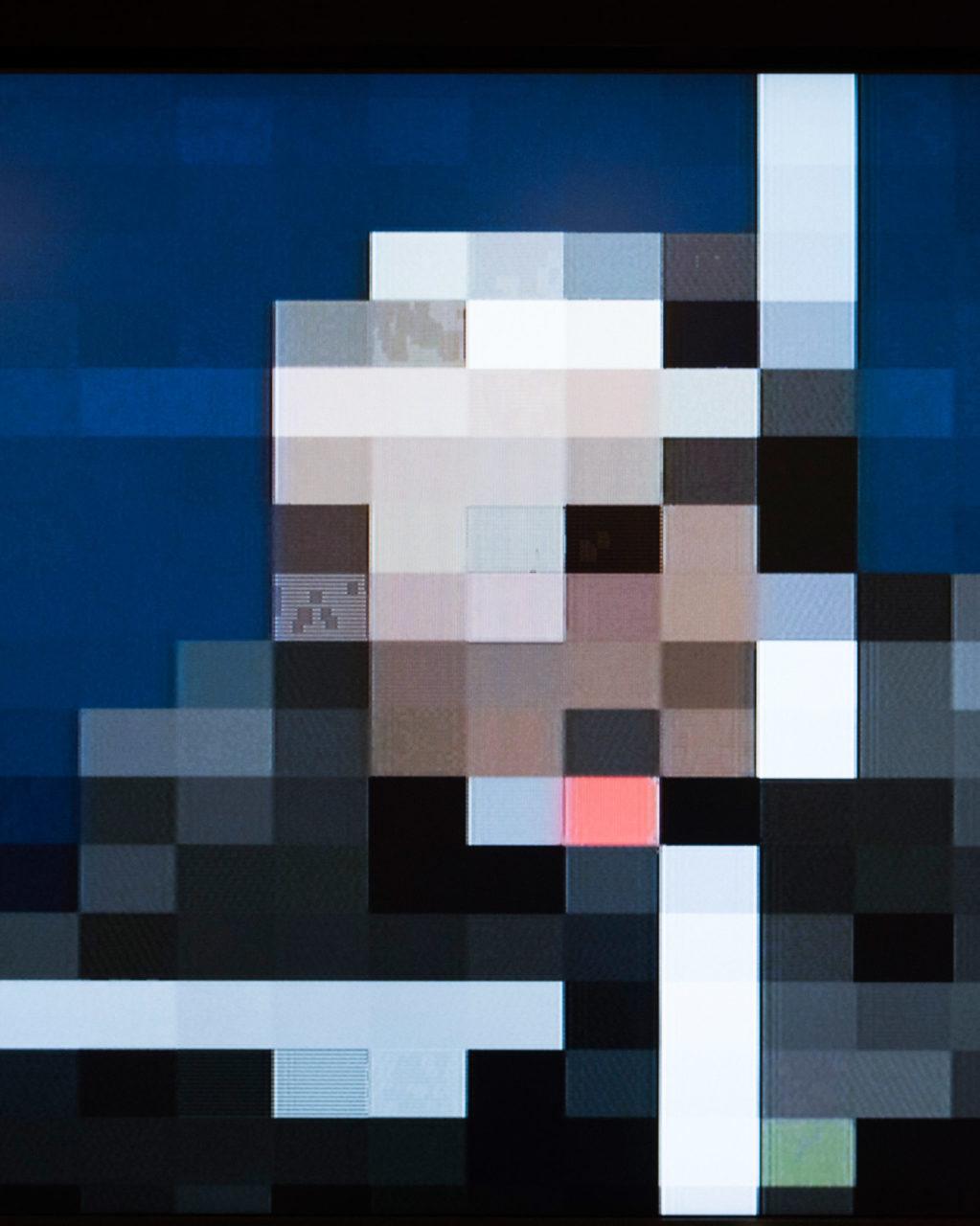 ICTY, International Criminal Tribunal for the former Yugoslavia, The Hague, The Netherlands, 2017.
Video feed
Court sessions are always transmitted live through the website of the ICTY, with half an hour delay. When a witness is protected, the public only sees a blurred image, and hears a distorted voice. The participants in the trial can always look the witness in the eye, however – it is the right of the indictee to see who is testifying against him.
ICTY, International Criminal Tribunal for the former Yugoslavia, The Hague, The Netherlands, 2017.
Video feed
Court sessions are always transmitted live through the website of the ICTY, with half an hour delay. When a witness is protected, the public only sees a blurred image, and hears a distorted voice. The participants in the trial can always look the witness in the eye, however – it is the right of the indictee to see who is testifying against him.  ICTY, International Criminal Tribunal for the former Yugoslavia, The Hague, The Netherlands, 2017.
Machine Facts
'When an expert starts talking, the content tends to be very specific', says Martina Fryda-Kaurimsky, interpreter for the ICTY. 'For example in the Srebrenica cases, a lot was said about excavators and how they were used. As an interpreter, you have to prepare very well, in order to understand exactly what it means and to interpret properly. We really needed these kinds of overviews in the booth.'
ICTY, International Criminal Tribunal for the former Yugoslavia, The Hague, The Netherlands, 2017.
Machine Facts
'When an expert starts talking, the content tends to be very specific', says Martina Fryda-Kaurimsky, interpreter for the ICTY. 'For example in the Srebrenica cases, a lot was said about excavators and how they were used. As an interpreter, you have to prepare very well, in order to understand exactly what it means and to interpret properly. We really needed these kinds of overviews in the booth.' 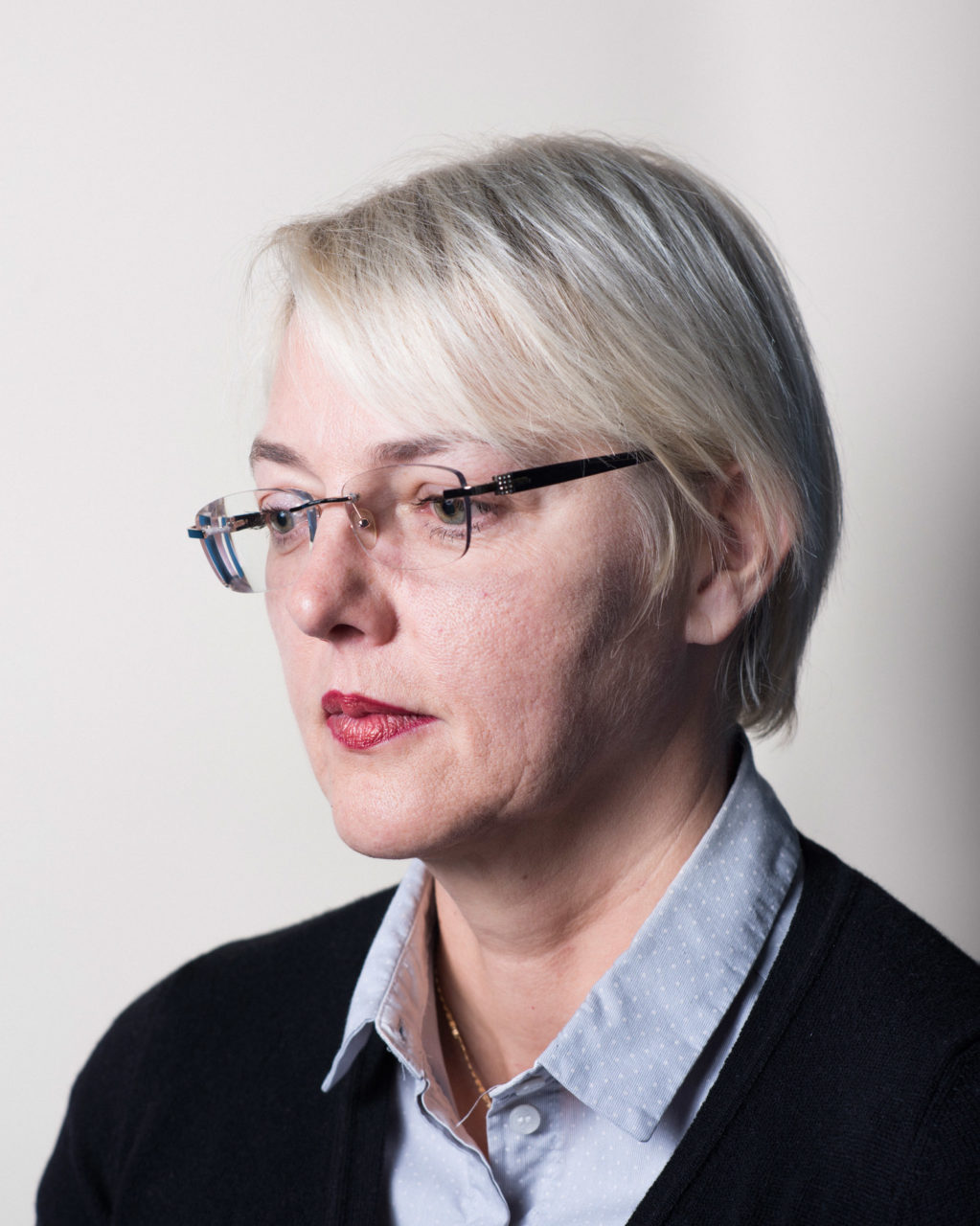 ICTY, International Criminal Tribunal for the former Yugoslavia, The Hague, The Netherlands, 2017.
Simonida Stosic, interpreter
'Interpreting is an unnatural skill: you have to speak and listen at the same time. It is a shizophrenic ability', says Simonida Stosic. She left the Former Yugoslavia in 1992. 'I didn't like what I was seeing: people easily fell for propaganda. My place was not there anymore.' Years later, she stood face to face with the ones that had ruined her country. 'The stories told by the witnesses made me feel ill. I hated the perpetrators that were tried. But if I would keep thinking about the gruesome testimonies, I would go mad. So I just concentrated on my job.'
ICTY, International Criminal Tribunal for the former Yugoslavia, The Hague, The Netherlands, 2017.
Simonida Stosic, interpreter
'Interpreting is an unnatural skill: you have to speak and listen at the same time. It is a shizophrenic ability', says Simonida Stosic. She left the Former Yugoslavia in 1992. 'I didn't like what I was seeing: people easily fell for propaganda. My place was not there anymore.' Years later, she stood face to face with the ones that had ruined her country. 'The stories told by the witnesses made me feel ill. I hated the perpetrators that were tried. But if I would keep thinking about the gruesome testimonies, I would go mad. So I just concentrated on my job.' 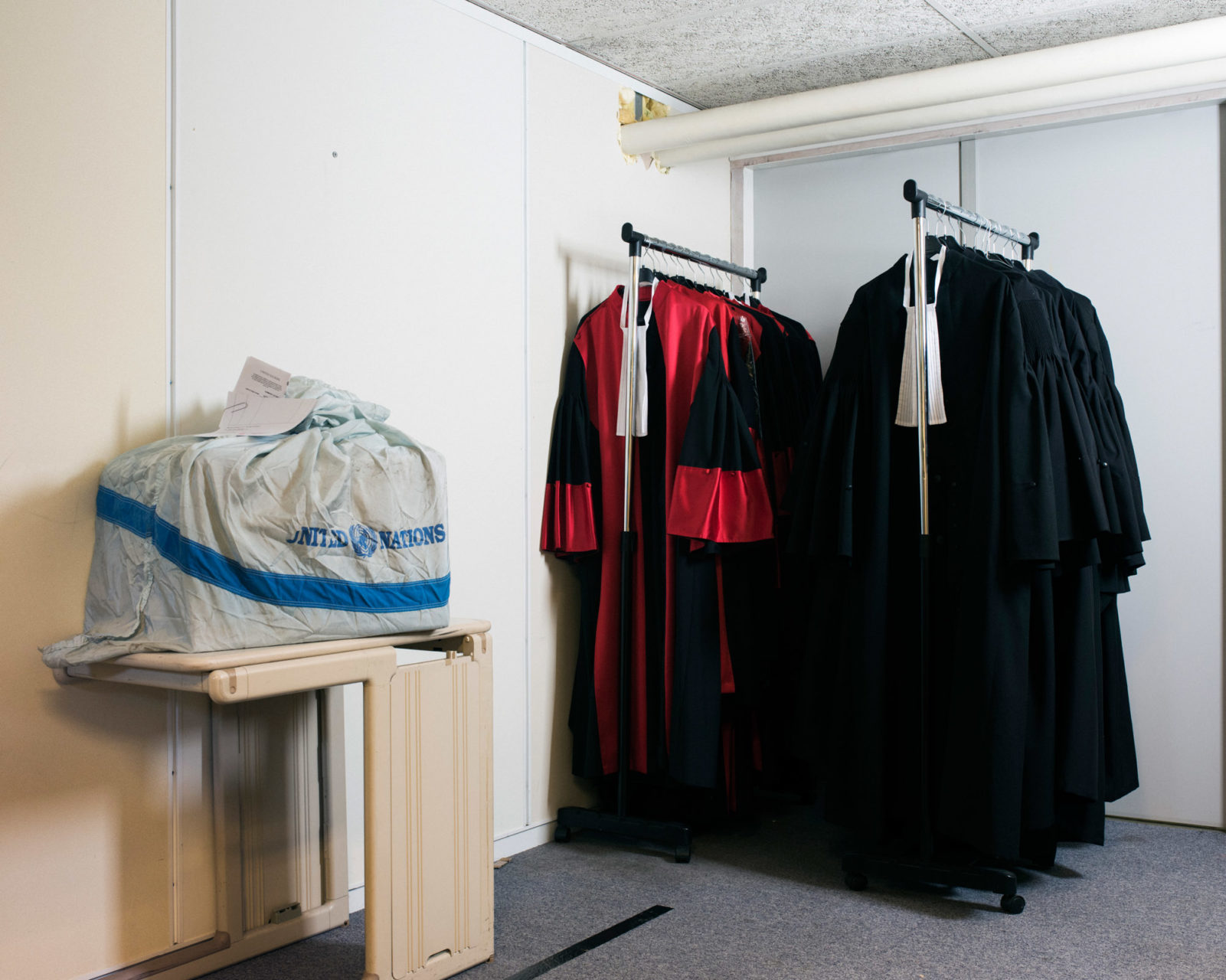 ICTY, International Criminal Tribunal for the Former Yugoslavia, The Hague, The Netherlands, 2017.
Judicial gowns
Since the beginning, the official supplier of the judicial gown of the ICTY is Bernard Poelman, a specialized tailor established in 1937 in The Hague. It is a highly acclaimed family business, that produces custom made gowns for both national and international courts in The Netherlands. There is a dry cleaning service three times a week.
ICTY, International Criminal Tribunal for the Former Yugoslavia, The Hague, The Netherlands, 2017.
Judicial gowns
Since the beginning, the official supplier of the judicial gown of the ICTY is Bernard Poelman, a specialized tailor established in 1937 in The Hague. It is a highly acclaimed family business, that produces custom made gowns for both national and international courts in The Netherlands. There is a dry cleaning service three times a week. 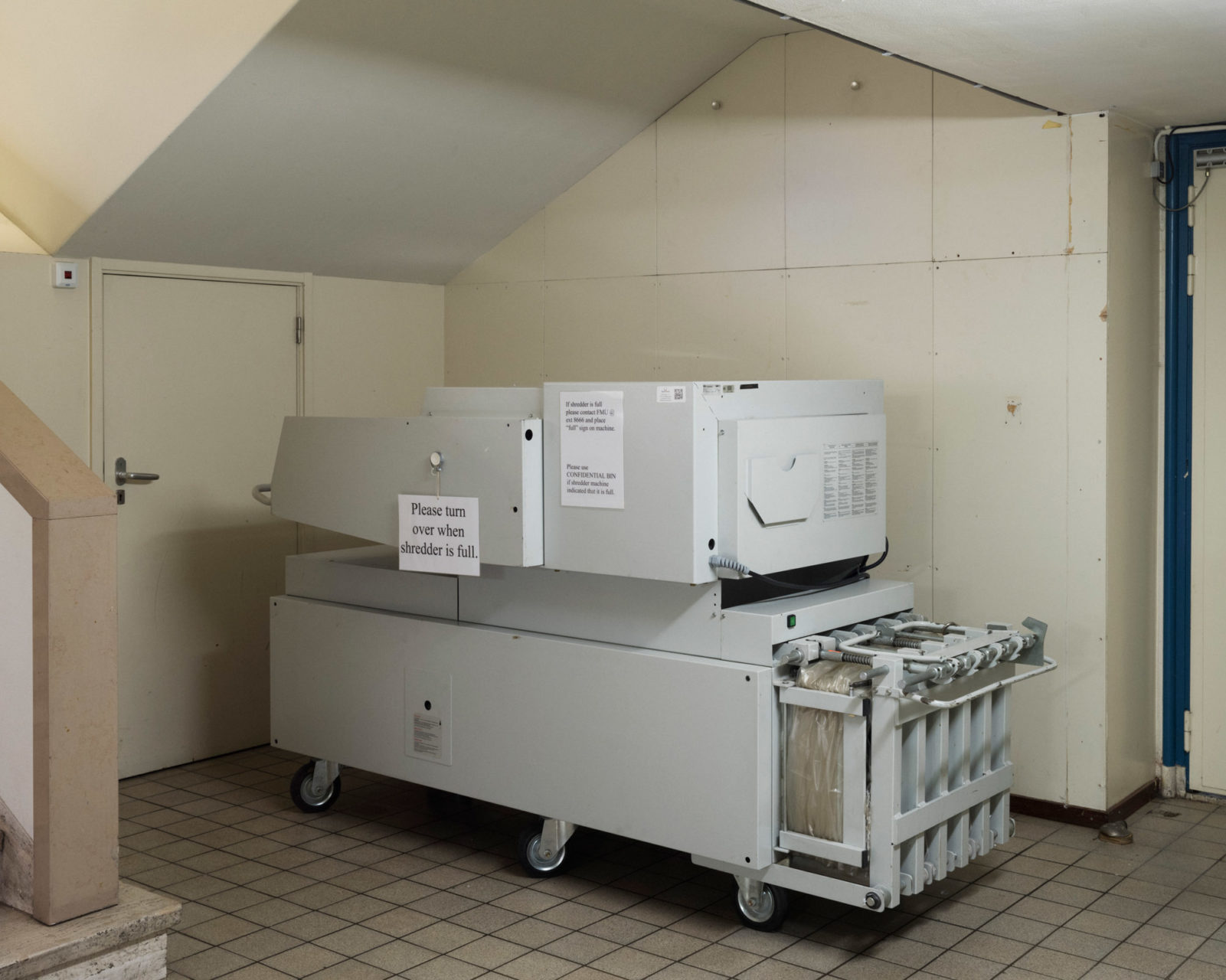 ICTY, International Criminal Tribunal for the former Yugoslavia, The Hague, The Netherlands, 2017.
Shredder
Tons of kilos of paper are being shredded in the basement of the ICTY building in The Hague. ‘Now, we even hire a truck that comes every now and then’, says Heather Kilner, one of the members of the liquidation team. ‘Because lots of these documents are confidential, the truck shreds the paperwork on the spot. Only when it’s finished and everything is destroyed for sure, it is allowed to leave the premises.’
ICTY, International Criminal Tribunal for the former Yugoslavia, The Hague, The Netherlands, 2017.
Shredder
Tons of kilos of paper are being shredded in the basement of the ICTY building in The Hague. ‘Now, we even hire a truck that comes every now and then’, says Heather Kilner, one of the members of the liquidation team. ‘Because lots of these documents are confidential, the truck shreds the paperwork on the spot. Only when it’s finished and everything is destroyed for sure, it is allowed to leave the premises.’ 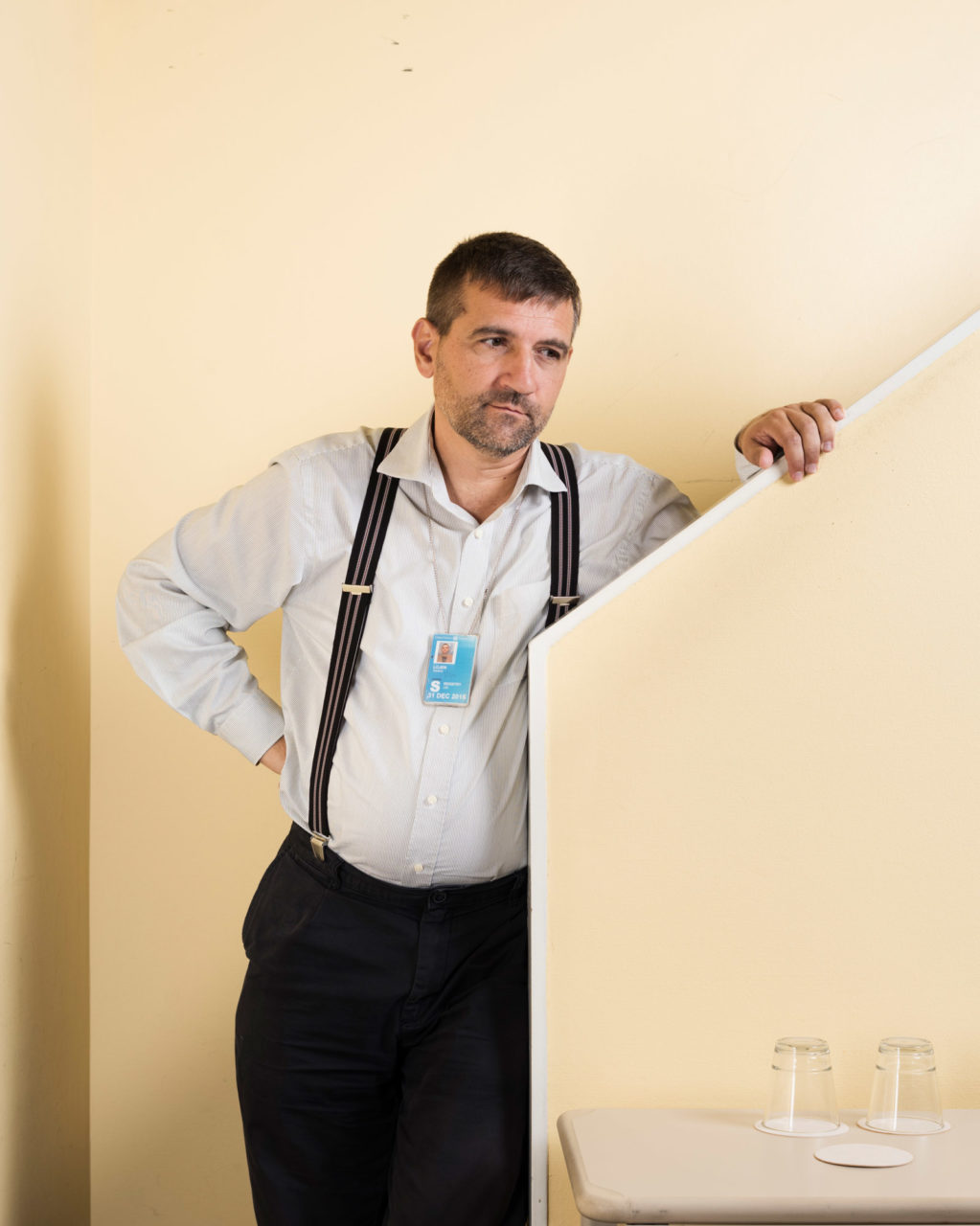 Resolution 808. Inside the Yugoslavia Tribunal. International Tribunal for the Former Yugoslavia, The Hague, 2018.
Vladimir Lojen, interpreter.
'After all these years at the tribunal, I'm done', says interpreter Vladimir Lojen. 'The war has finished for everyone, but not for me. I'm reminded of this conflict every day.'
Resolution 808. Inside the Yugoslavia Tribunal. International Tribunal for the Former Yugoslavia, The Hague, 2018.
Vladimir Lojen, interpreter.
'After all these years at the tribunal, I'm done', says interpreter Vladimir Lojen. 'The war has finished for everyone, but not for me. I'm reminded of this conflict every day.'  ICTY, International Criminal Tribunal for the former Yugoslavia, The Hague, The Netherlands, 2017.
Disposal
Piles of computers, printers, scanners, radio’s and other equipment is waiting in the basement to be disposed of. When the ICTY will close its doors at the end of this year, it cannot own a single item anymore. A liquidation team has been working on this process for years.
ICTY, International Criminal Tribunal for the former Yugoslavia, The Hague, The Netherlands, 2017.
Disposal
Piles of computers, printers, scanners, radio’s and other equipment is waiting in the basement to be disposed of. When the ICTY will close its doors at the end of this year, it cannot own a single item anymore. A liquidation team has been working on this process for years. 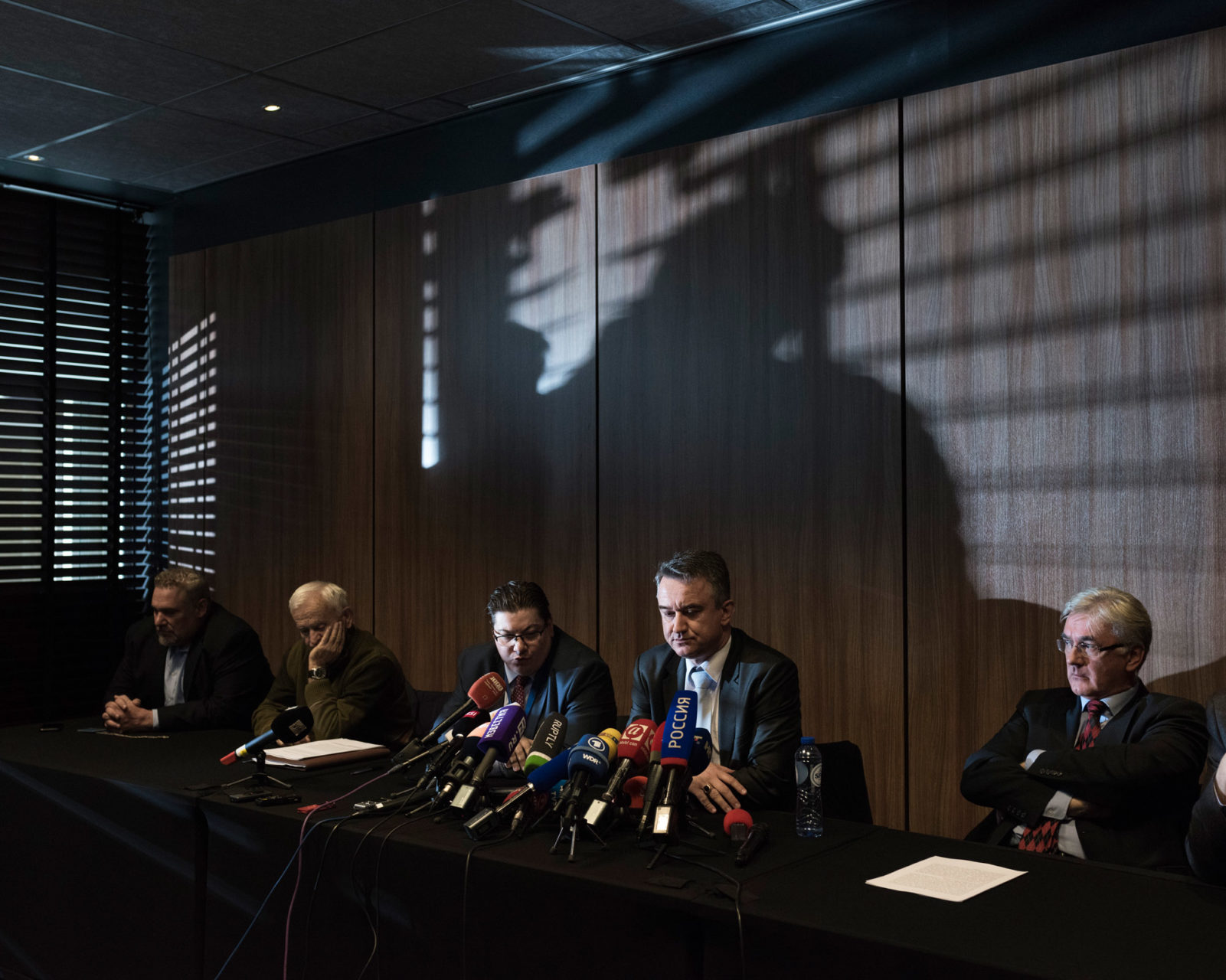 The Hague, november 2017. Ratko Mladic judgement. The former bosnian serb general was convicted to life sentence for war crimes committed during the bosnian war. Ratko Mladic son Darko Mladic and his lawyer Dragan Ivetic giving a press conference after the judgement.
The Hague, november 2017. Ratko Mladic judgement. The former bosnian serb general was convicted to life sentence for war crimes committed during the bosnian war. Ratko Mladic son Darko Mladic and his lawyer Dragan Ivetic giving a press conference after the judgement.